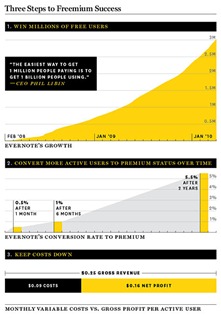As better writers than I have already turned out excellent work on the tech policy discussion sponsored by Politico’s @morningtech writers and Qualcomm, I wanted to draw some attention to what Politico, as a news organization has been doing over the last several months as compared to DC’s other news outlets. (By news outlets, I mean published in print and online.) While newspapers have come a long way since our 2008 report on the Use of the Internet by America’s Newspapers, Politico stands out in several important regards.
 1. Organizing off-line events to generate unique content and drive traffic
1. Organizing off-line events to generate unique content and drive traffic
In the last three weeks Politico has organized two events with great speakers that attracted a significant amount of earned media. The October 25th “Political Campaigns and Social Media” panel discussion hosted at GWU was covered live by CSPAN and attended by a capacity crowd. Likewise today’s “#NextinTech” event was attended by a capacity crowd and featured discussions with US CTO Aneesh Chopra, U.S. Senators @MarkWarner and @JohnEnsign, Representatives @AnnaEshoo, ITIF’s Rob Atkinson, Google’s Pablo Chavez and Dell’s Frank Muehleman. So far it has generated at least 715 tweets by 301 influential people and several dozen high impact blog postings. (Not to mention an unknown amount of potential new subscribers for Politico Pro.)
2. Making their reporters available off-line
Outside of online Q&A sessions and their own book signings, few reporters from other news organizations make public appearances. (Local TV station and online newspaper TBD, which is also a subsidiary of Allbritton Communications being a notable exception.) I intend to do additional research to document this, but from a brief survey of colleagues in the know, similar efforts by other outlets are hard to find. For instance, the Washington Post’s website lists nothing in the way of future or past events. There are just certain things you will hear from reporters in person that you won’t online, such as that Politico’s Ben Smith is often frustrated by the trolling and off-topic comments on his blog. Things like this are objectively true, yet not something really worth him writing or complaining about.
3. Adapting 50-Cent’s Business Model
Don’t let the ‘Biblical Strategies’ title scare you, Michael Holmes does a great job of summarizing how 50-Cent used a mixture of ambition, hustling, finding a way to stand out, having testers and turning adversity into opportunity and achieve success. A lot of these theories have been applied in some manner or fashion by Politico, such as how Mike Allen’s Playbook endeared itself to a unique and powerful audience, which in turn generated a NYT profile, that generated even more subscribers and has at least given Politico’s new paid content- Politico Pro a chance at succeeding where others pay-walls have not.
Grant Gross at PCWorld: “Some Tech Issues May Move Forward in Congress.”
“ From 1994 to 2000, Republicans controlled Congress and a Democrat, Bill Clinton, was president, yet several major pieces of tech-related bills passed during that time, Atkinson…Legislation passing during that period included the Telecommunications Act, the Digital Millennium Copyright Act and the Electronic Signature Act, and Congress passed new high-skill immigration rules and significantly increased money for tech-related research.”
Alex Howard at gov20.govfresh: “US CTO Chopra on what’s next in tech: open government, spectrum policy, HIT, learning IT.”
”First, it’s clear that Chopra and the Obama administration is thinking about online privacy, with the recently announced Internet privacy committee. There are open questions about how much portfolio, budget, subpoena power or other authority any new position would hold, but it’s an area to watch. Chopra said that he had met with Representative Bob Goodlatte (R-VA) and had found him supportive of privacy policy.”
Sign up today to have our latest posts delivered straight to your inbox.